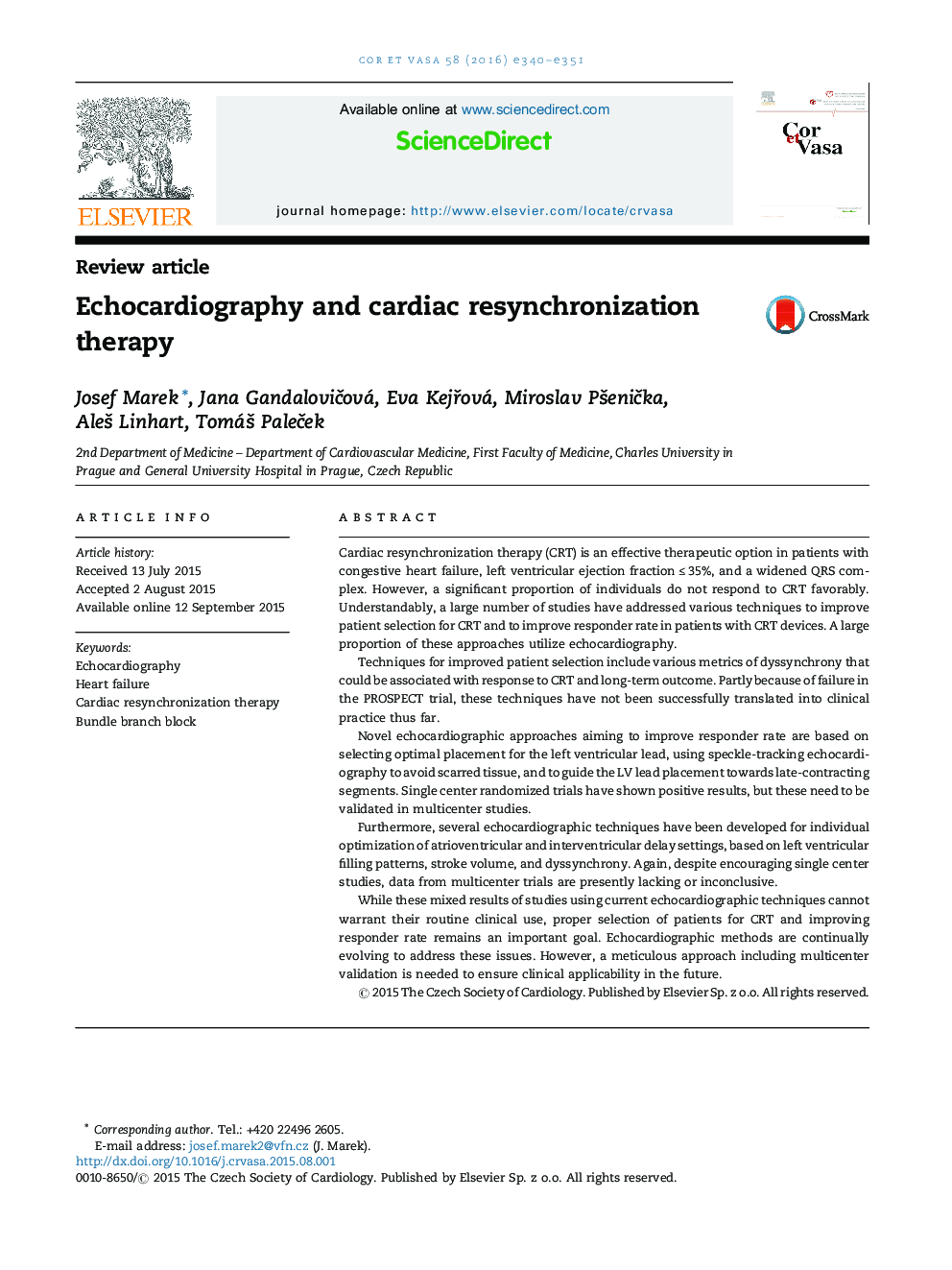| Article ID | Journal | Published Year | Pages | File Type |
|---|---|---|---|---|
| 2728280 | Cor et Vasa | 2016 | 12 Pages |
Cardiac resynchronization therapy (CRT) is an effective therapeutic option in patients with congestive heart failure, left ventricular ejection fraction ≤ 35%, and a widened QRS complex. However, a significant proportion of individuals do not respond to CRT favorably. Understandably, a large number of studies have addressed various techniques to improve patient selection for CRT and to improve responder rate in patients with CRT devices. A large proportion of these approaches utilize echocardiography.Techniques for improved patient selection include various metrics of dyssynchrony that could be associated with response to CRT and long-term outcome. Partly because of failure in the PROSPECT trial, these techniques have not been successfully translated into clinical practice thus far.Novel echocardiographic approaches aiming to improve responder rate are based on selecting optimal placement for the left ventricular lead, using speckle-tracking echocardiography to avoid scarred tissue, and to guide the LV lead placement towards late-contracting segments. Single center randomized trials have shown positive results, but these need to be validated in multicenter studies.Furthermore, several echocardiographic techniques have been developed for individual optimization of atrioventricular and interventricular delay settings, based on left ventricular filling patterns, stroke volume, and dyssynchrony. Again, despite encouraging single center studies, data from multicenter trials are presently lacking or inconclusive.While these mixed results of studies using current echocardiographic techniques cannot warrant their routine clinical use, proper selection of patients for CRT and improving responder rate remains an important goal. Echocardiographic methods are continually evolving to address these issues. However, a meticulous approach including multicenter validation is needed to ensure clinical applicability in the future.
